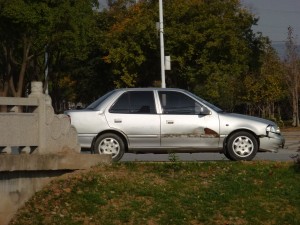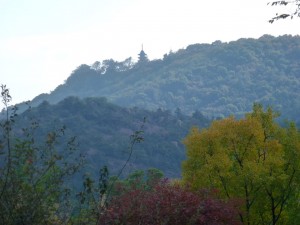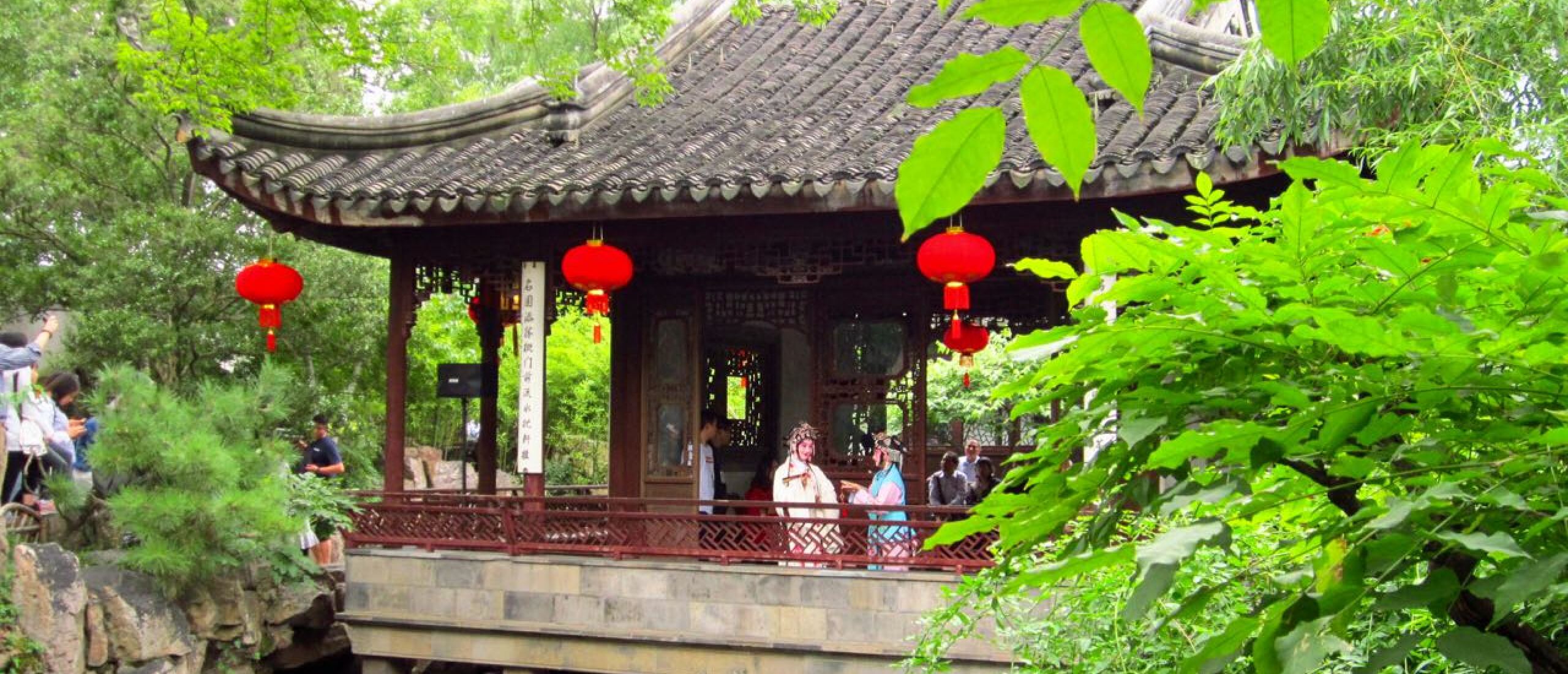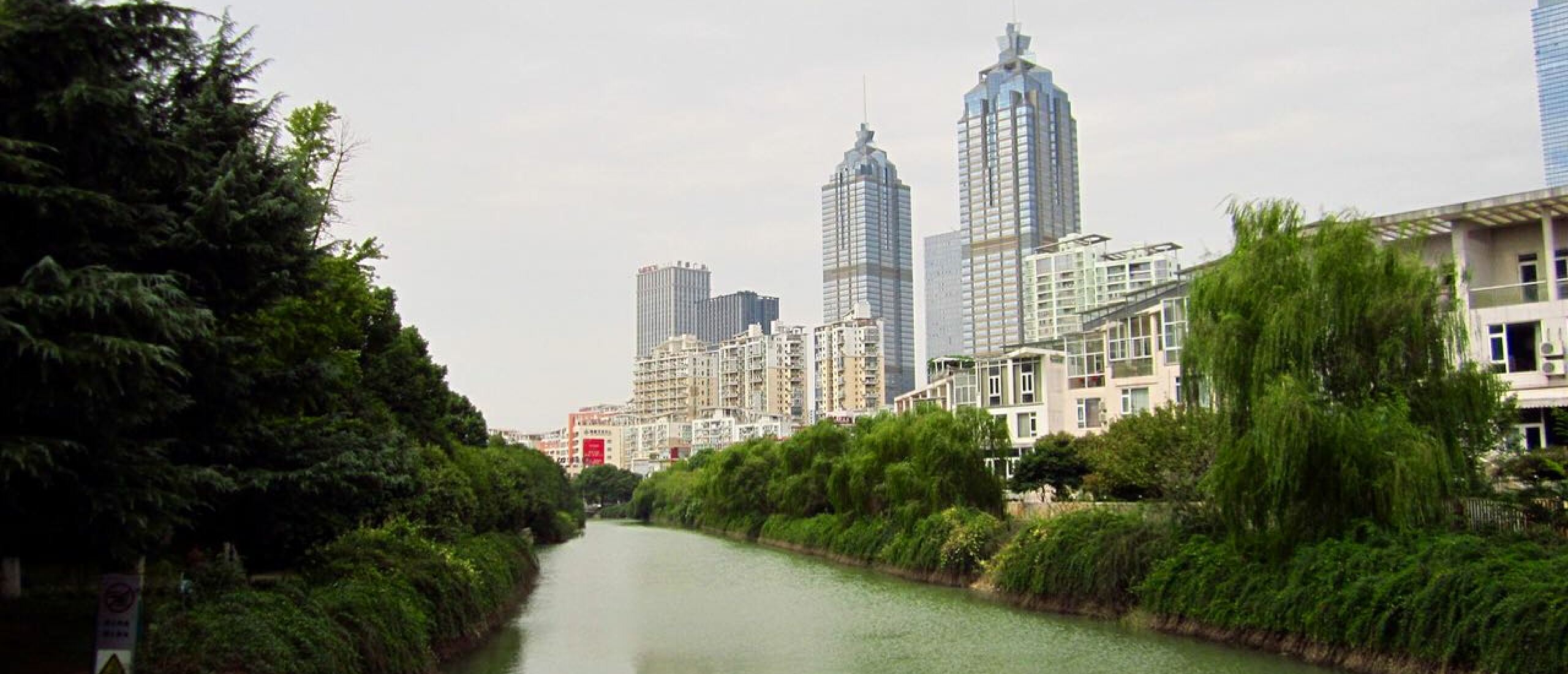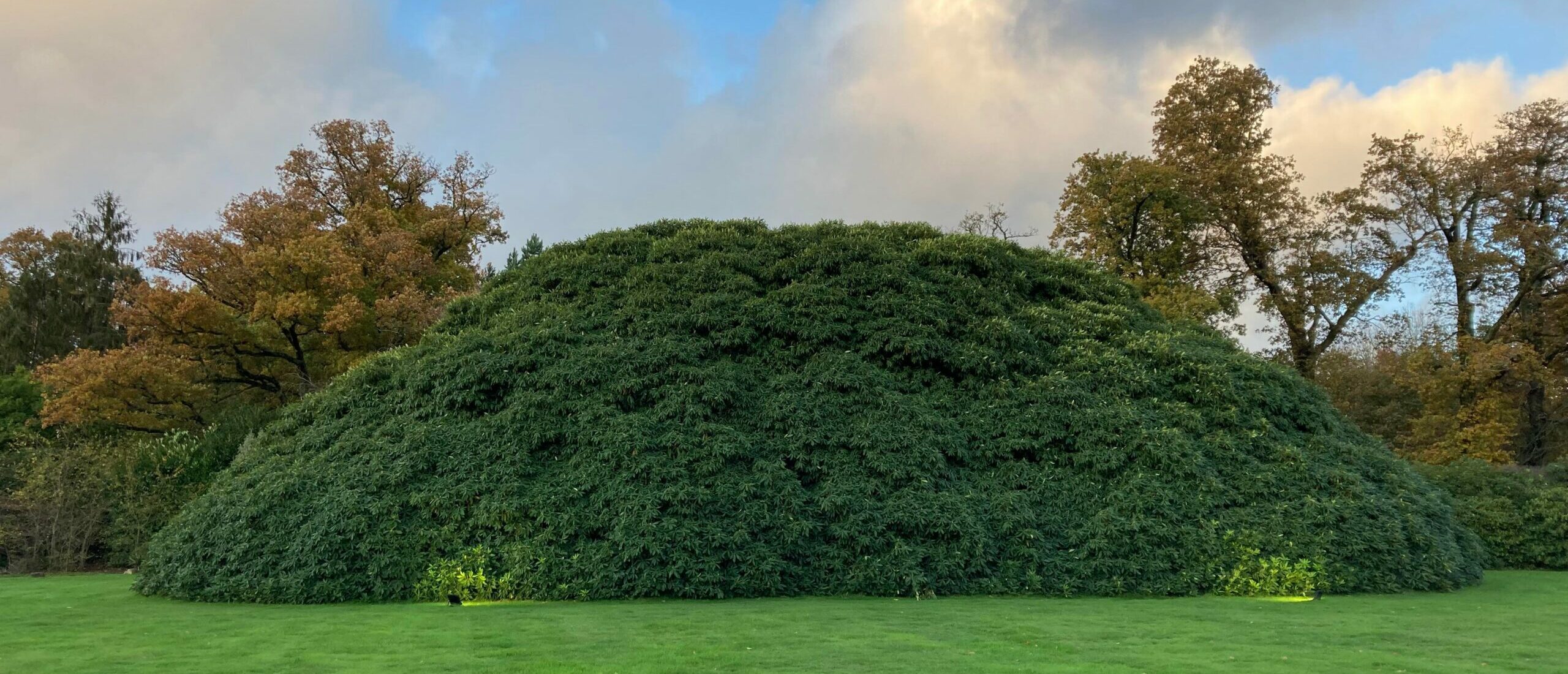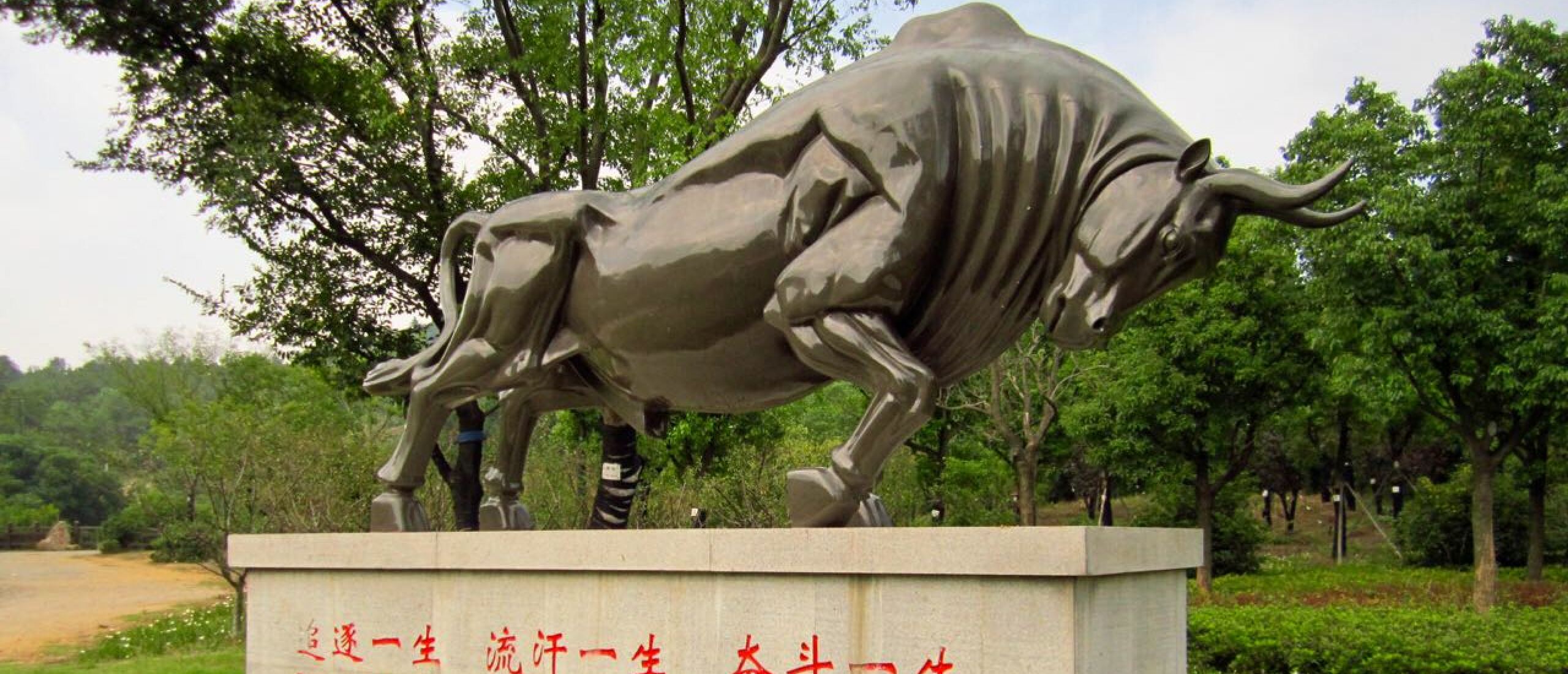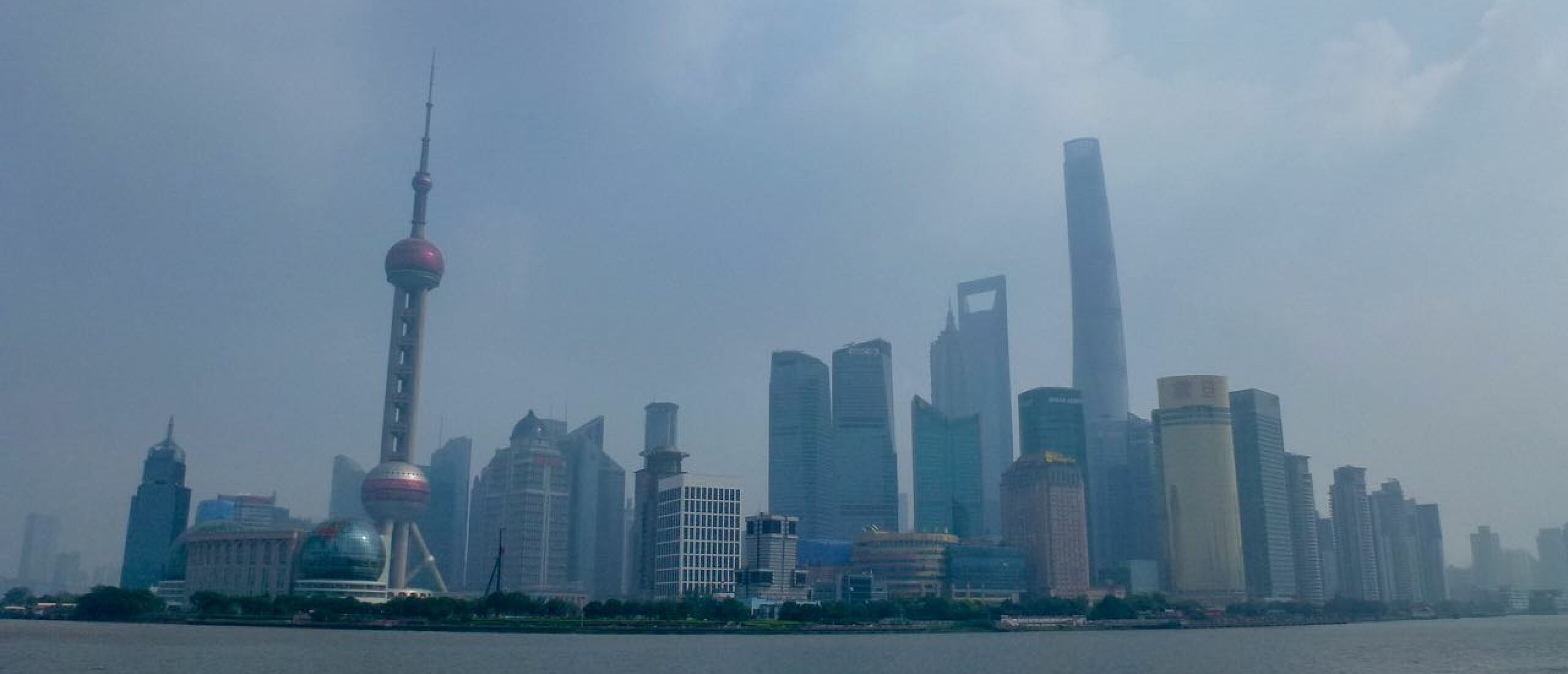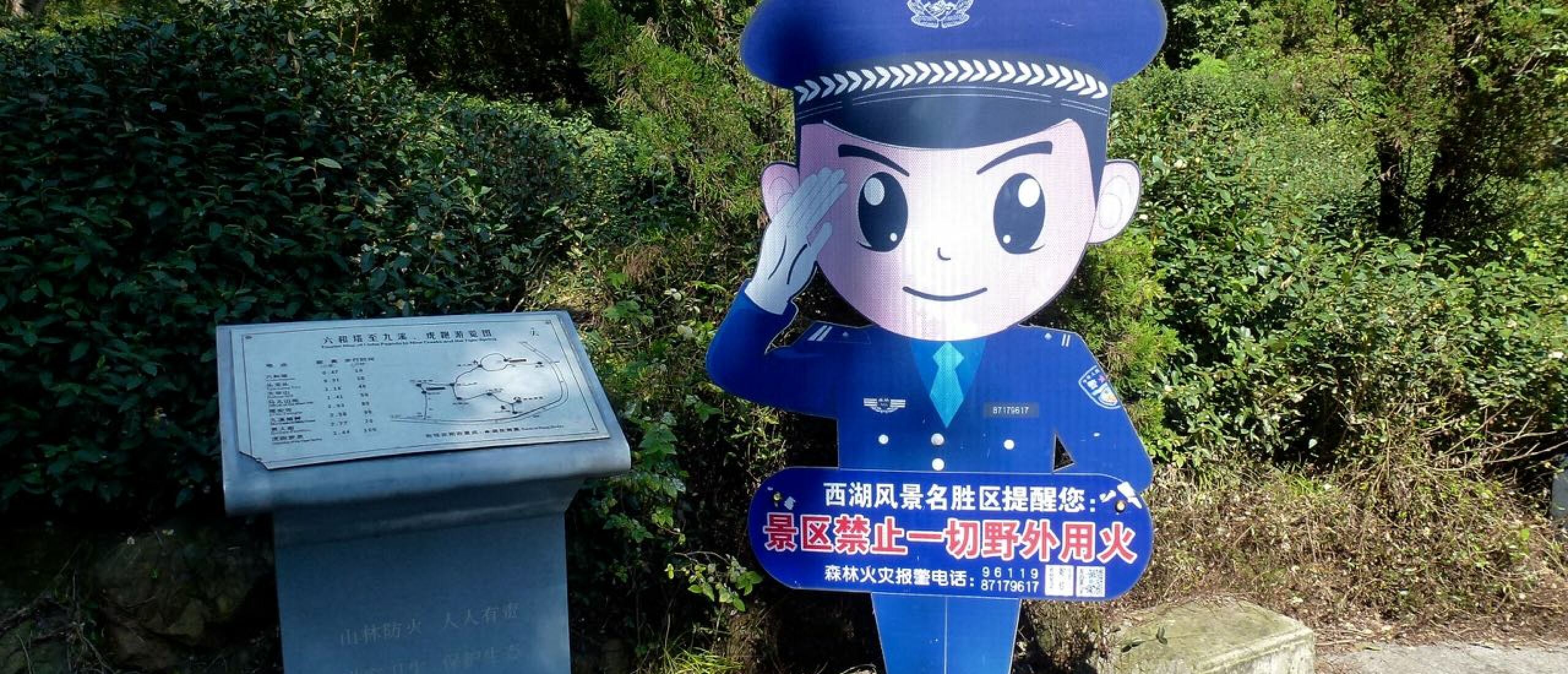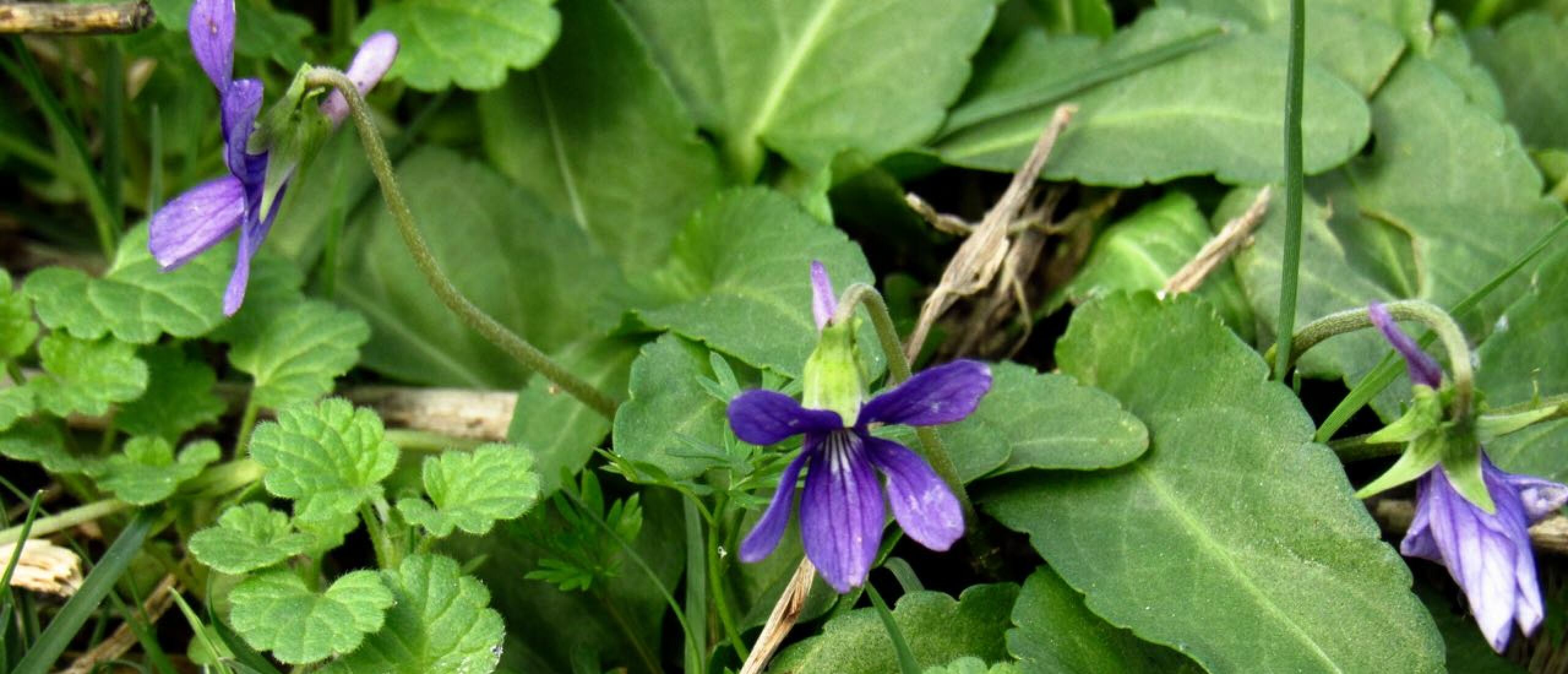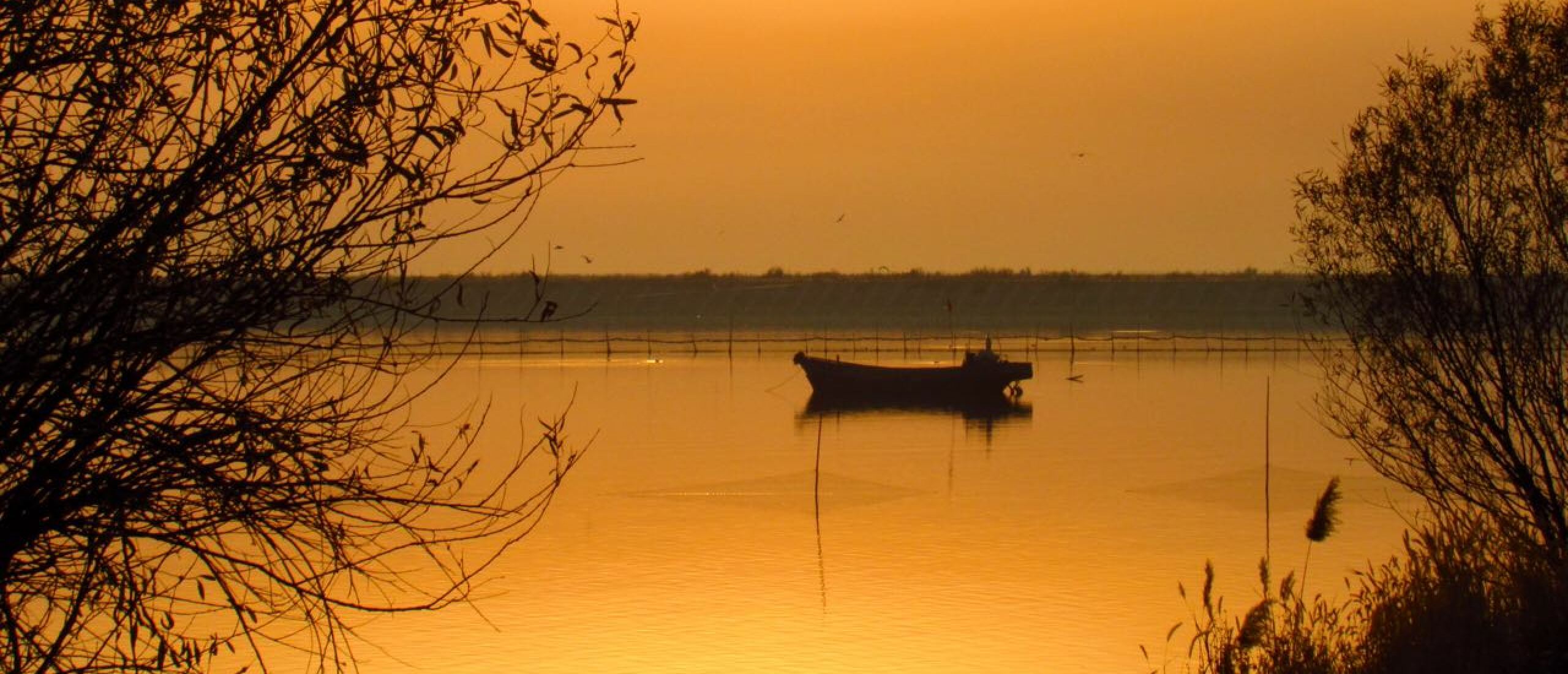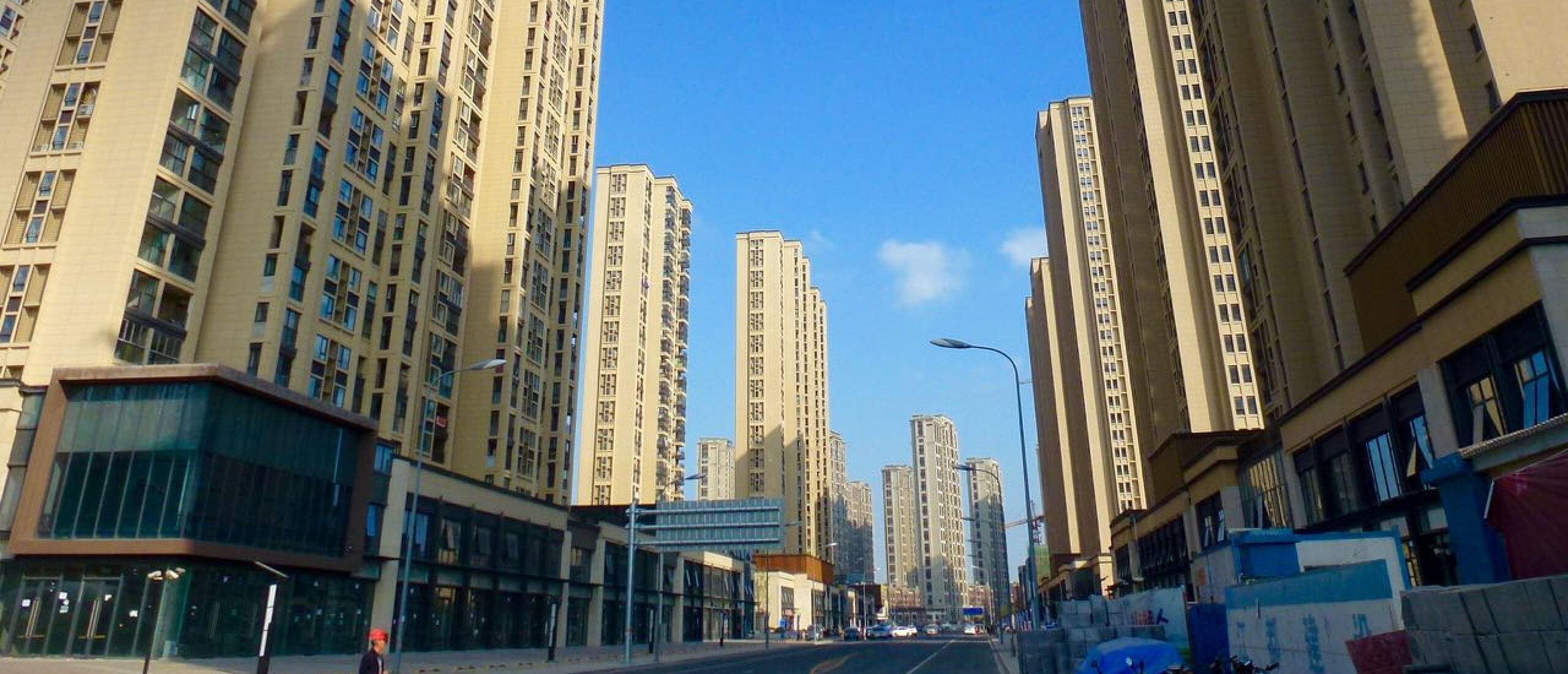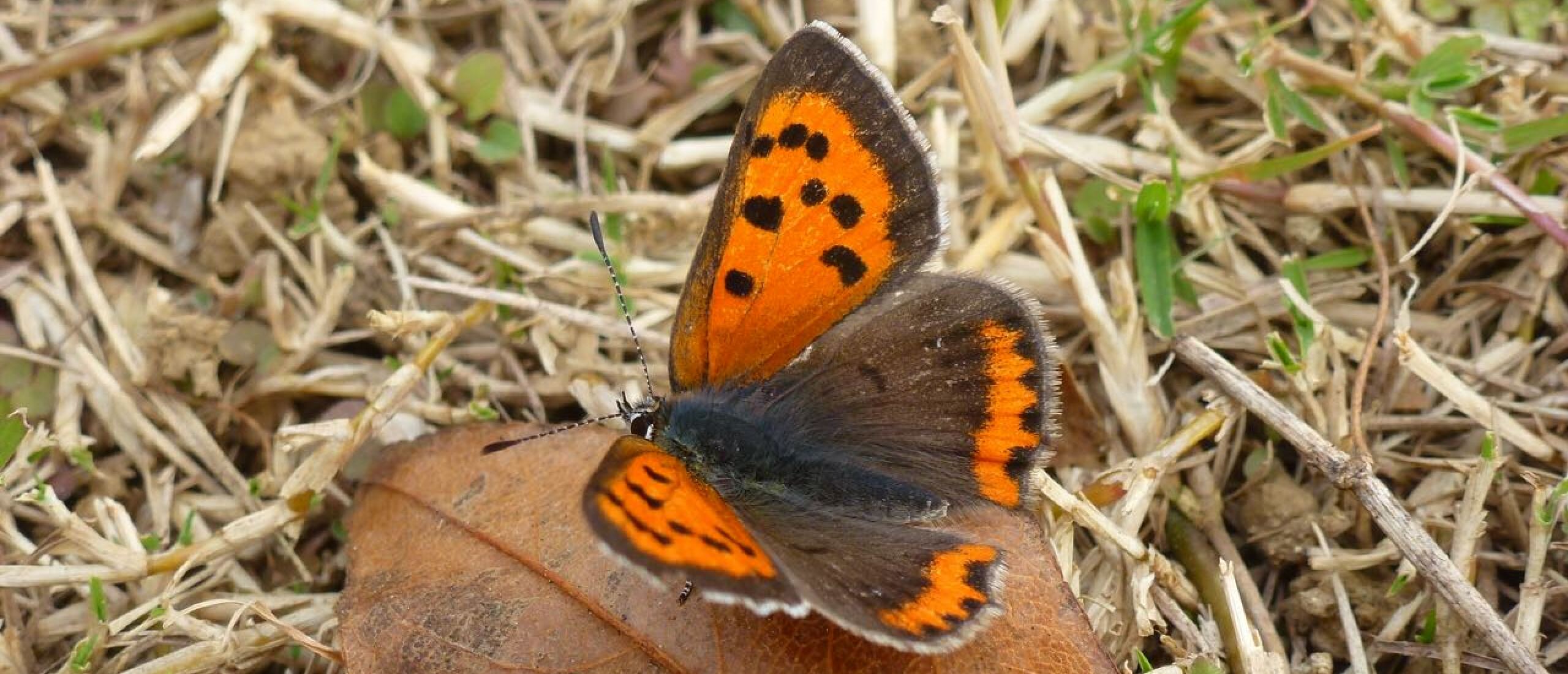
A near miss in Suzhou Today I ventured out early en route for one of Suzhou’s “mountains”, but on my way to the subway station, I spontaneously decided to explore an area of trees and hedges that looked slightly promising for birds. A friendly team of city gardeners shouted instructions to me when I found myself confronted by a wide ditch, indicating that I should jump a little further along, where it became narrower. There was not much to be seen in the way of birds, so I rejoined the road and was just approaching a major intersection, walking on the pavement, when suddenly, as if from nowhere, a car careered round the corner, clearly out of control, and headed straight for me. The vehicle crashed into the curb, which was luckily high, but the car still had sufficient momentum to mount the curb, breaking its front bumper and making a terrific clonking sound as the bottom of the engine hit the concrete, and continue onto the pavement, lurching to a stop literally only perhaps a metre from me, its windscreen wipers scraping eerily. The airbag popped out, and the driver remained in his seat, motionless. Another vehicle driver stopped to help, and I walked away in considerable shock. Had that man tried to kill me? If I had been perhaps two seconds ahead of where I was, he would undoubtedly have succeeded. Was he on drugs? Unlikely here in Suzhou. He did not look drunk. Had he had a heart attack? He looked healthy. Perhaps he had fallen asleep at the wheel. Anyhow, whatever the explanation, I had had a narrow escape.
I recovered on the subway ride to Mudu, from where I walked towards the hills, retracing my footsteps of a few weeks ago, and eventually reached the entrance of the natural park, where I was greeted by a cheery policeman who seemed to recognise me from my previous visit. It was, as always, an enormous relief to walk into a peaceful, natural area, and it was not long before I was enjoying the autumn colours and a reasonable number of late butterflies, which were taking advantage of the pleasantly warm sunshine.
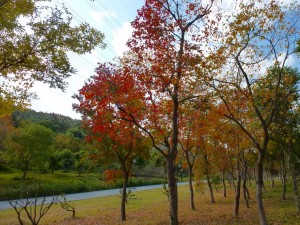 A welcome scene near the entrance of the park
A welcome scene near the entrance of the park
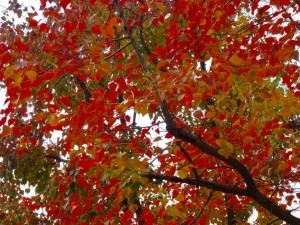 Autumn leaves brightened up the scene
Autumn leaves brightened up the scene
There were fewer butterfly species than I had found here back in late September, but it was good to see a number of Pale Grass Blues, Zizeeria maha, a lone, tattered Long-tailed Blue, Lampides boeticus, numerous Chinese Commas, Polygonia c-aureum, a couple of Common Grass Yellows, Eurema hecabe, and Small Whites, Pieris rapae, and several splendid Indian Fritillaries, Argyreus hyperbius.
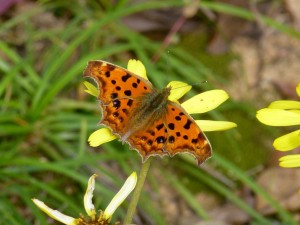 A Chinese Comma basks in the autumn sunshine
A Chinese Comma basks in the autumn sunshine
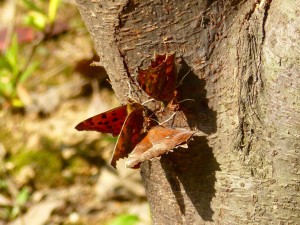 Three Chinese Commas seemed to be drinking sap from this tree
Three Chinese Commas seemed to be drinking sap from this tree
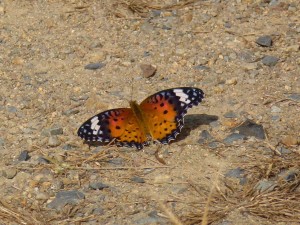 A female Indian Fritillary still looks fresh although it is late in the season
A female Indian Fritillary still looks fresh although it is late in the season
One butterfly that was clearly on its last legs was a Common Mormon, Papilio polytes, a black and white species of Swallowtail, that had lost so much of its wings that it was surprising that it could still fly. I did later see another much fresher-looking individual, but that one did not allow me to obtain any photographs.
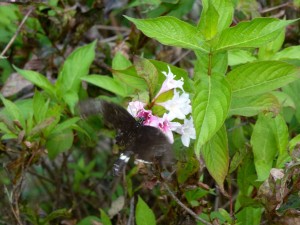 This Common Mormon managed to fly although it had lost much of its wings
This Common Mormon managed to fly although it had lost much of its wings
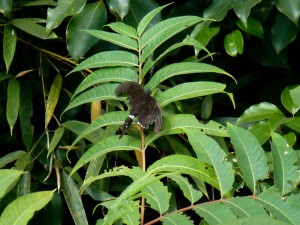 It is astonishing that such a severely damaged butterfly can still keep going
It is astonishing that such a severely damaged butterfly can still keep going
I decided not to tackle the steep hike up Lingyan mountain, and instead ambled along the pathways that flank the hilly area, stopping whenever I heard a flock of birds or saw an interesting butterfly. On one occasion I found myself in a semi-derelict cemetery, a slightly spooky place. A little further along, I came to the attractive Tianling Buddhist temple, a much more cheerful place, and I admired an almost Stonehenge-like natural rock formation on the hillside above me.
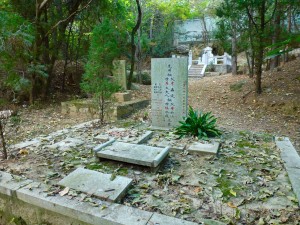 A relatively modern grave in an otherwise derelict cemetery
A relatively modern grave in an otherwise derelict cemetery
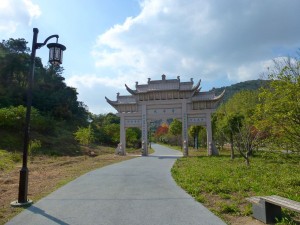 The imposing gateway to the Tianling temple was a much more cheerful sight than the cemetery
The imposing gateway to the Tianling temple was a much more cheerful sight than the cemetery
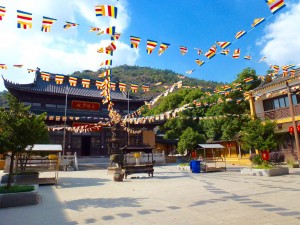 The Tianling temple looked attractive and welcoming
The Tianling temple looked attractive and welcoming
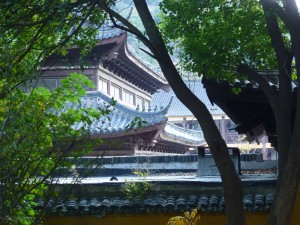 The Tianling temple's roof looked attractive through the trees
The Tianling temple's roof looked attractive through the trees
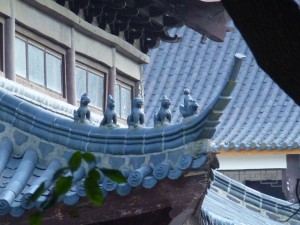 A close-up of the Tianling roof
A close-up of the Tianling roof
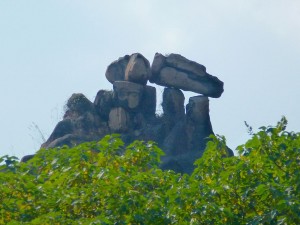 Extraordinary rock formations reminded me of Stonehenge
Extraordinary rock formations reminded me of Stonehenge
On the way back, I left the main path and wandered along a grassy track along the edge of the wooded hill. Some strange rectangular cavities had been exposed by erosion, and I eventually decided that they must be ancient graves. After my near-death experience in the morning, finding myself unexpectedly in a cemetery, and then seeing these open graves, I felt that I had had enough of macabre scenes, and I headed back towards the main route.
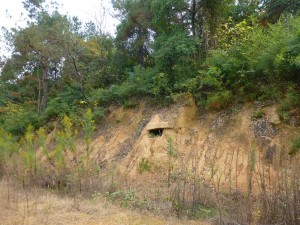 These strange rectangular holes may have been ancient graves, exposed by erosion
These strange rectangular holes may have been ancient graves, exposed by erosion
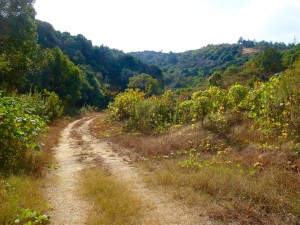 How I love this kind of woodland track, a paradise for butterflies
How I love this kind of woodland track, a paradise for butterflies
Before I got there, however, some gentle calls and flitting birds attracted my attention, and I was delighted to find a small flock of one of my very favourite Oriental birds, the delightful Yellow-throated, or Elegant, Bunting. This little gem, with its perky crest and jet black mask and bib, set off by a bright yellow eyebrow and throat, took my mind back my first ever sighting of this species in the winter of 1986/1987, in a forest in Kyoto, when my friend Guy Walker and I were house-sitting in a freezing, ancient, paper-walled house with no indoor toilet over Christmas and New Year, and had recently arrived in Japan after our epic Trans-Siberian journey.
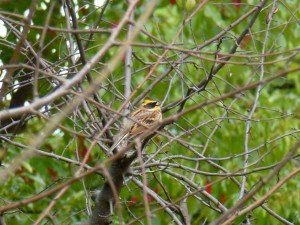 The male Yellow-throated Bunting is a delightful little bird
The male Yellow-throated Bunting is a delightful little bird
The autumn leaves were looking lovely in the afternoon sunshine, and I savoured the peaceful scenery of this attractive area.
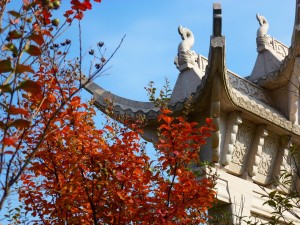 The autumn colours are approaching their best
The autumn colours are approaching their best
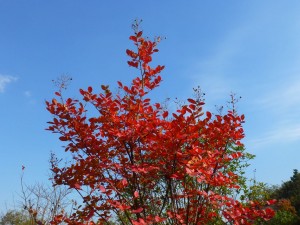 Red leaves against a blue sky near Tianling temple
Red leaves against a blue sky near Tianling temple
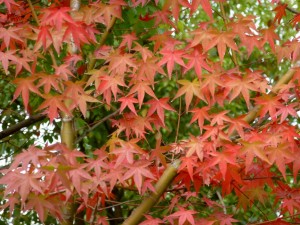 Japanese maple leaves in all their autumn glory
Japanese maple leaves in all their autumn glory
A final flurry of butterflies included a beautiful Small Copper, Lycaena phleas, which posed attractively in the afternoon sunshine, and then I left the forest and returned to the maelstrom of traffic and noise that is modern Suzhou.
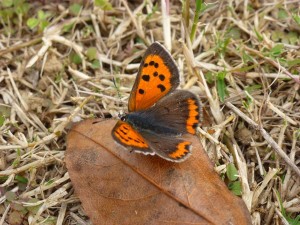 The Small Copper is always a pleasure to see, whether in Europe or China
The Small Copper is always a pleasure to see, whether in Europe or China


